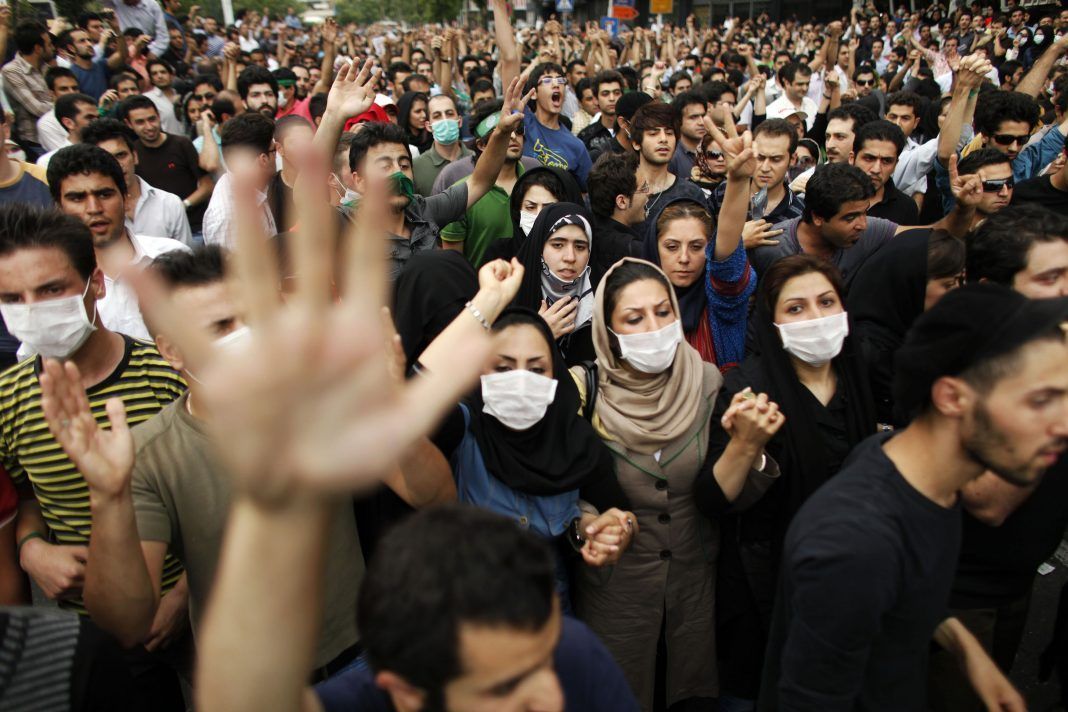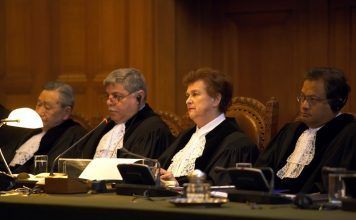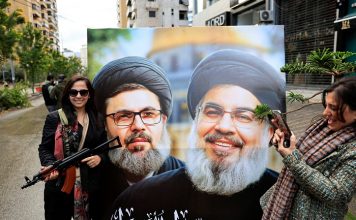The Iranian government’s human rights breaches should be addressed using a combination of pioneering legal and diplomatic tools to ensure victims can hold perpetrators to account, according to experts speaking in an online seminar hosted by the Washington-based think tank the Atlantic Council.
The conference, held on Dec. 15, looked at how global litigation strategies could be used to promote human rights in countries around the world, with a particular focus on the Islamic Republic of Iran.
Titled “How global litigation strategies can help advance human rights in Iran,” the seminar was introduced by William Wechsler, the director of the Atlantic Council’s Rafik Hariri center for the Middle East and Middle East programs, and was chaired by Gissou Nia, a senior resident fellow at the Atlantic Council.
The panel of experts for the event included Haydee Dijkstal, a barrister at 33 Bedford Row Chambers in London; Amanda Ghahremani, an international human rights lawyer at the Canadian Partnership for International Justice; and Scott Gilmore, an attorney at Hausfeld LLP and adjunct professor at Georgetown Law in Washington.
Discussing the legal processes for victims of human rights violations carried out or sanctioned by Iranian officials, the panel explained the current legislative tools for bringing lawsuits in both civil and criminal courts in the U.S. and Canada, and pointed out the gaps in legislation — which create significant challenges for victims of these crimes to seek justice, and compensation.
Ms. Dijkstal told attendees that successful lawsuits relied on an incremental approach which placed pressure on the perpetrator and provided accountability and compensation for victims of human rights abuses.
“When representing victims of human rights violations, I think one of the most important things to do is not focus too narrowly on just one avenue for seeking accountability and reparations, but pursue a multi-pronged approach whereby each different avenue of litigation provides a building block to build pressure by victims on the state that’s responsible and hopefully influence it to change its behavior,” she said.
Ms. Dijkstal added that she would like to see civil law in this area developed so that it could offer more relief for victims of crimes against humanity.
“Civil law is often overlooked at first glance as an option for addressing human rights violations, but it can be very effective to get results for victims. What civil law brings is an ability to approach human rights violations not only to seek accountability after they occur, which is often the case with criminal law, but also provides the opportunity to prevent or to deter human rights violations,” she said.
The panel also answered questions from attendees, which included a query about how to use current domestic and international mechanisms to help arbitrarily detained dual nationals imprisoned in Iran.
The online conference coincided with the launch for the Atlantic Council’s report, “Closing the accountability gap on human rights violators in the Islamic Republic of Iran through global litigation strategies,” written by Ms. Nia, and published last week.
During the seminar, the experts discussed the use of sanctions as a way to pressure the Islamic Republic into complying with human rights legislation, but also diplomatic avenues to secure consular help for detained dual nationals, as well as the triggering of UN mechanisms to place additional pressure on the state.
Several dual nationals have been arbitrarily detained by the Iranian government in recent years, sparking accusations that Iran’s government has been using non-resident Iranians as a way to gain political leverage at a time when the country is being crippled by economic mismanagement, U.S. sanctions and spiraling Coronavirus infections.
Media reports that dual nationals have been freed through prisoner swaps with the Iranian government have increased speculation that Tehran is using detained dual nationals to secure the release of Iranian prisoners abroad.
Iran’s Foreign Minister Mohammad Javad Zarif has also suggested that countries engage in a global prisoner exchange program with Iran. The comment was made following reports that detained British-Australian academic Dr. Kylie Moore-Gilbert was freed after the Australian government agreed to release three jailed Iranians.
Dr. Moore-Gilbert was arrested in Iran on a charge of espionage, a charge she has always denied and which was rejected by the Australian government as “baseless and politically motivated.”








